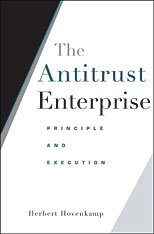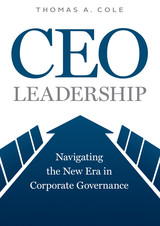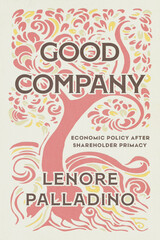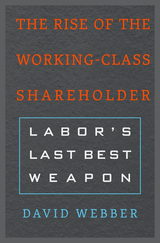
After thirty years, the debate over antitrust's ideology has quieted. Most now agree that the protection of consumer welfare should be the only goal of antitrust laws. Execution, however, is another matter. The rules of antitrust remain unfocused, insufficiently precise, and excessively complex. The problem of poorly designed rules is severe, because in the short run rules weigh much more heavily than principles. At bottom, antitrust is a defensible enterprise only if it can make the microeconomy work better, after accounting for the considerable costs of operating the system.
The Antitrust Enterprise is the first authoritative and compact exposition of antitrust law since Robert Bork's classic The Antitrust Paradox was published more than thirty years ago. It confronts not only the problems of poorly designed, overly complex, and inconsistent antitrust rules but also the current disarray of antitrust's rule of reason, offering a coherent and workable set of solutions. The result is an antitrust policy that is faithful to the consumer welfare principle but that is also more readily manageable by the federal courts and other antitrust tribunals.

Drawing on four decades of experience advising boards and CEOs on how to do just that, Thomas A. Cole offers in CEO Leadership a straightforward and accessible guide to navigating corporate governance today. He explores the recurring question of whose benefit a corporation should be governed for, along with related matters of corporate social responsibility, and he explains the role of laws, market forces, and politics and their influence on the governance of public companies. For corporate directors, he provides a comprehensive examination of the roles, responsibilities, and accountability the role entails, while also offering guidance on how to be as effective as possible in addressing both routine corporate matters and special situations such as mergers and acquisitions, succession, and corporate crises. In addition, he offers practical suggestions for CEOs on leadership and their interactions with boards and shareholders. Cole also mounts a compelling case that a corporate culture that celebrates diversity and inclusion and has zero tolerance for sexual misconduct is critical to long-term business success.
Filled with vignettes from Cole’s many years of experience in the board room and C-suite, CEO Leadership is an invaluable resource for current and prospective directors, CEOs, and other senior officers of public companies as well as the next generation of corporate leaders and their business and financial advisors.




On the faulty intellectual origins of shareholder primacy—and how policy can win back what’s been lost.
In an era of shareholder primacy, share price is king. Businesses operate with short-term goals to deliver profits to shareholders, enjoying stability (and bonuses) in the process. While the public bemoans the doctrine for its insularity and wealth-consolidating effects, its influence over corporate governance persists. Good Company offers an exacting argument for why shareholder primacy was never the right model to follow for truly understanding how corporations operate.
Lenore Palladino shows that corporations draw power from public charters—agreements that allow corporations to enjoy all manner of operational benefits. In return, companies are meant to innovate for the betterment of the societies that support them. However, that debt—increasingly wielded for stock buybacks and shareholder bonuses—is not being repaid. Palladino theorizes a modern corporation that plays its intended role while delivering social and economic good in the process and offers tangible policy solutions to make this a reality. Good Company is both an expert introduction to the political economy of the firm—as it was, as it is, as it can be—and a calibrating examination of how public policy can shape companies, and societies, for the better.

Although much has already been written about the rise and fall of Enron, four important questions remain unanswered: What management behavior and practices led Enron down the path from truly innovative to fraudulent management? How could Enron’s board of directors have failed to detect the business, ethical, and legal risks embedded in the company’s aggressive financial strategies and accounting practices? Why did Enron’s external watchdogs—security analysts, credit-rating agencies, and regulatory agencies—fail to bark? What actions can prevent Enron-type breakdowns in the future? Innovation Corrupted addresses each of these questions.
In contrast to the time-line narratives of previous books on Enron that offer interesting but largely unsystematic insight into individual actions and organizational processes, Innovation Corrupted pursues a more methodical analysis of the causes and lessons of Enron’s collapse. Based upon newly available sources, Salter identifies the social pathologies and administrative failures that fostered the company’s ethical drift and inhibited the board of directors from exercising effective governance and control. Salter also goes beyond the work of previous books by proposing practical recommendations for preventing future Enron-type disasters. These prescriptions relate to board oversight, financial incentives for executives, and, most importantly, the maintenance of ethical discipline when operating in the murky borderlands of the law. It was in this shadowed space that Enron’s senior executives lost their way.

When Steven Burd, CEO of the supermarket chain Safeway, cut wages and benefits, starting a five-month strike by 59,000 unionized workers, he was confident he would win. But where traditional labor action failed, a novel approach was more successful. With the aid of the California Public Employees’ Retirement System, a $300 billion pension fund, workers led a shareholder revolt that unseated three of Burd’s boardroom allies.
In The Rise of the Working-Class Shareholder: Labor's Last Best Weapon, David Webber uses cases such as Safeway’s to shine a light on labor’s most potent remaining weapon: its multitrillion-dollar pension funds. Outmaneuvered at the bargaining table and under constant assault in Washington, state houses, and the courts, worker organizations are beginning to exercise muscle through markets. Shareholder activism has been used to divest from anti-labor companies, gun makers, and tobacco; diversify corporate boards; support Occupy Wall Street; force global warming onto the corporate agenda; create jobs; and challenge outlandish CEO pay. Webber argues that workers have found in labor’s capital a potent strategy against their exploiters. He explains the tactic’s surmountable difficulties even as he cautions that corporate interests are already working to deny labor’s access to this powerful and underused tool.
The Rise of the Working-Class Shareholder is a rare good-news story for American workers, an opportunity hiding in plain sight. Combining legal rigor with inspiring narratives of labor victory, Webber shows how workers can wield their own capital to reclaim their strength.


Understanding the challenges of corporate governance is central to our comprehension of the economic dynamics driving corporations today. Among the most important institutions in capitalism today, corporations and joint-stock companies had their origins in Europe during the seventeenth and eighteenth centuries. And as they became more prevalent, the issue of internal governance became more pressing. At stake—and very much contested—was the allocation of rights and obligations among shareholders, directors, and managers.
This comprehensive account of the development of corporate governance in Britain and Ireland during its earliest stages highlights the role of political factors in shaping the evolution of corporate governance as well as the important debates that arose about the division of authority and responsibility. Political and economic institutions confronted similar issues, including the need for transparency and accountability in decision making and the roles of electors and the elected, and this book emphasizes how political institutions—from election procedures to assemblies to annual reporting—therefore provided apt models upon which companies drew readily. Filling a gap in the literature on early corporate economy, this book provides insight into the origins of many ongoing modern debates.

This book investigates the way that corporations are strategically shaping children to be under-aged hyperconsumers as well as the submissive employees and uncritical citizens of the future.
Sharon Beder shows how marketers and advertisers are targeting ever younger children in a relentless campaign, transforming children's play into a commercial opportunity and taking advantage of childish anxieties.
Beder investigates the corporate relations and ideals that infiltrate every aspect of our lives. She presents an alarming picture of how a child's social development -- through education, health care and nutrition -- has become an ordered conveyor belt of consumerist conditioning. Focusing on education in particular, Beder explains how businesses are taking control of more and more aspects of schooling, not only for profit but to erode state schooling and promote business values. Similarly, she shows how 'difficult' children are taught from an early age that pharmaceuticals can be used to discipline them or to make them 'happy'.
READERS
Browse our collection.
PUBLISHERS
See BiblioVault's publisher services.
STUDENT SERVICES
Files for college accessibility offices.
UChicago Accessibility Resources
home | accessibility | search | about | contact us
BiblioVault ® 2001 - 2025
The University of Chicago Press









